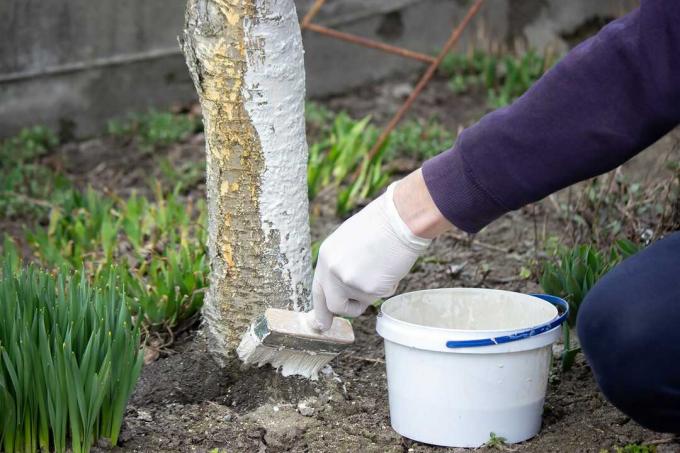
The Judas Tree (Cercis siliquastrum) impresses with its beauty during the flowering period countless pink or white flowers. It originally comes from Asia and the question arises as to whether it is hardy in this country.
To the point
- young trees are more sensitive than older specimens
- Take protective measures
- In addition to frost, protect against too much sun in winter
- Container plants are also at risk
Table of contents
- Young trees
- Older trees
- Basic protective measures for trees
- frequently asked Questions
Young trees
Judas trees, especially those that have just been planted, are not sufficiently hardy. Even a few degrees below zero can harm you. That's why he should Judas tree, if possible, should be planted in spring so that it grows in well until winter.

Other important measures to protect the tree:
- Find the optimal location right from the start
- protected from wind and cold frosts
- permeable, not too moist soil
- In winter, partial shade is better than full sun
- A southern house wall retains heat better even in winter
- Cover the root area thickly with leaves in autumn
- Wrap the bark with raffia
- If necessary, cover the crown with fleece
- If the tree is still very small, a complete wrapping may make sense
Older trees
Basically, the Judas tree is one of the very easy-care trees that, once well established, no longer requires any care, but in the cold season more attention can't hurt. Although older Judas trees are more frost-resistant, it cannot be assumed that they can survive very low temperatures below 15 degrees below zero without damage. That's why it's helpful, even with older plants, to cover the root area with brushwood or leaves.

A notice:Since Judas trees have shallow roots, they benefit from a layer of mulch around the trunk all year round.
Basic protective measures for trees
Like other trees, the Judas tree is at risk from frost cracks in winter. This is especially true if the tree is in full sun in winter. The alternation between frosty nights and warm rays of sunshine can be so damaging to the tree bark that it cracks. This not only reduces the tree's frost hardiness, it can also lead to further problems as pathogens and pests find easier access.
The bark can be protected by various measures:
- White paint reflects the sun's rays and protects against excessive heating
- Wrappings made of jute or raffia protect against excessive cooling and keep out the sun's rays

A notice: In addition to the trunk, the main branches at the base of the trunk should also be protected in winter.
frequently asked Questions
This is possible with small varieties. However, the tree must then overwinter indoors. The substrate in the pot is too small for it to freeze completely. Before the first cold nights, the tree is placed in a frost-free room and is not returned outside until mid-May.
Although there are differences, they are very small when it comes to frost hardiness. Hardly any Judas tree is really completely winter hardy, even if stores claim otherwise.
Since it doesn't bloom until April, most of the severe frosts are already over by then. Nevertheless, the onset of winter can cause the flowers to freeze. Covering the crown with fleece at night can help. If entire shoots are frozen, they are removed in spring.
